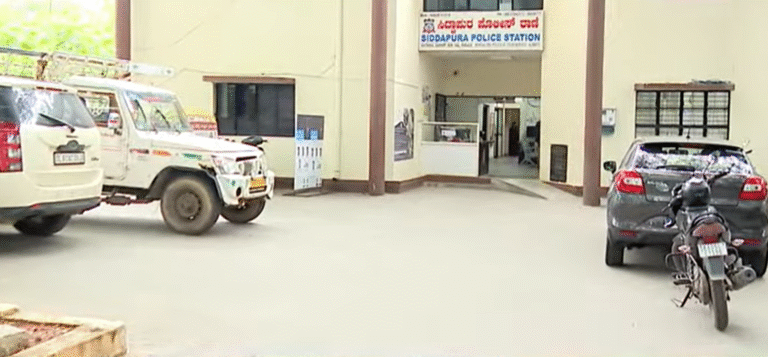<p data-start="64" data-end="1033">Sierra Leone’s education sector is facing a major challenge in integrating technology into learning, as revealed in a recent World Bank study conducted in collaboration with the Global Education Policy Dashboard (GEPD), EdTech Hub, and the Directorate of Science, Technology, and Innovation (DSTI). The study, based on the EdTech Readiness Index (ETRI), highlights critical gaps in policy implementation, digital access, infrastructure, and teacher training. While Sierra Leone has made commitments to digital learning, including launching the National Innovation and Digital Strategy (NIDS) in 2019 and the Education Sector Plan (ESP) for 2022-2026, these efforts have yet to result in widespread adoption of technology in classrooms. The COVID-19 pandemic exposed the country’s vulnerability in education, underscoring the urgent need for remote learning infrastructure. However, despite growing awareness, actual technology use in schools remains almost nonexistent.</p><p data-start="1035" data-end="1659">Government institutions such as the Ministry of Basic and Senior Secondary Education (MBSSE), the Ministry of Technical and Higher Education (MTHE), and the Ministry of Communication, Technology, and Innovation (MoCTI) play a role in implementing digital education policies. However, a lack of coordination between these entities continues to hinder progress. While some policies exist on paper, they have not translated into tangible results in schools. Many of the country’s EdTech initiatives are still in their infancy, and without a strong foundation, integrating technology into education will remain an uphill battle.</p><h3 data-start="1661" data-end="1716">Schools Struggle with Management and ICT Leadership</h3><p data-start="1718" data-end="2177">One of the key findings of the study is that school management practices related to technology integration are weak. While 60% of school principals acknowledge their responsibility for integrating ICT into their school strategies, only 25% report having a digital strategy. There is a lack of structured policies guiding how ICT should be used in schools, and most school leaders do not have the training required to manage digital resources effectively.</p><p data-start="2179" data-end="2678">Even when school leaders show interest in implementing ICT, they lack the necessary resources, support, and infrastructure. Training for school administrators and teachers on digital education is practically non-existent, leaving them unprepared to develop technology-driven learning environments. Many school leaders believe that ensuring students have digital skills is important, yet without structured guidance and investment in ICT, they cannot take meaningful steps toward achieving this goal.</p><h3 data-start="2680" data-end="2743">Teachers and Students Left Behind in the Digital Revolution</h3><p data-start="2745" data-end="3322">Teachers are at the core of education, yet they are among the most ill-equipped to adopt technology in Sierra Leone. There is no digital competency framework in place for teachers, and only 1% of educators have received training in ICT for teaching. Many teachers lack confidence in using digital tools, and their exposure to technology is minimal. As a result, there is no reported use of ICT for lesson planning, classroom instruction, or student assessments. Without a structured approach to professional development, teachers remain disconnected from the digital world.</p><p data-start="3324" data-end="3945">The situation is even more concerning for students, who have no structured access to digital education at the primary level. There are no government policies mandating ICT learning before secondary school, meaning primary students are left without exposure to essential digital skills. Despite this, nearly 25% of teachers mistakenly believe there is a national guideline outlining digital competencies for students, indicating a major gap in policy communication. Additionally, students do not use digital devices in school or at home for learning, leaving them completely detached from the modern digital landscape.</p><h3 data-start="3947" data-end="3999">A Severe Shortage of Devices and Internet Access</h3><p data-start="4001" data-end="4574">A major roadblock to digital education in Sierra Leone is the lack of access to digital devices. Out of 295 surveyed schools, only nine had at least one functioning digital device, and only eight allowed students to use them for learning. There are no national policies on providing students with laptops, tablets, or personal computers, and there is no monitoring mechanism to track device availability and usage. Schools that do receive digital tools through donor-supported programs often struggle with maintenance, as there are no structured plans for their upkeep.</p><p data-start="4576" data-end="5244">Internet connectivity is another major challenge. While the government has partnered with UNICEF and the International Telecommunication Union (ITU) under the GIGA initiative to improve school internet access, the results have been minimal. By 2022, only 1% of schools had functioning internet, and 85% of public schools lacked electricity, making digital transformation nearly impossible. Without a stable power supply and affordable internet, schools cannot integrate digital learning into their curriculum. Policies addressing internet affordability and connectivity remain underdeveloped, making it difficult to expand access to online education resources.</p><h3 data-start="5246" data-end="5306">A Way Forward: Investing in Sustainable EdTech Solutions</h3><p data-start="5308" data-end="5879">Despite these challenges, there are opportunities for Sierra Leone to turn the tide on digital education. The report emphasizes the need for a coordinated national strategy that includes targeted investment in infrastructure, teacher training, and sustainable financing. Establishing a clear policy framework with well-defined roles for government agencies can help streamline efforts and ensure better collaboration. Investing in large-scale teacher training programs that incorporate ICT-based teaching strategies is crucial to bridging the digital skills gap.</p><p data-start="5881" data-end="6391">Expanding initiatives such as the one-tablet-per-school project under the World Bank’s FREE Education Project could significantly improve digital learning access. Similarly, increasing internet connectivity through public-private partnerships and subsidized educational access can help bridge the digital divide. Implementing strong monitoring and evaluation systems will be essential in tracking progress and ensuring that digital education policies lead to real improvements in learning outcomes.</p><p data-start="6393" data-end="7172" data-is-last-node="" data-is-only-node="">Sierra Leone has shown commitment to digital learning through initiatives like the GIGA project and the Learning Passport platform, which provides digital resources for teachers and students. If these efforts are scaled up and effectively implemented, they could lay the foundation for a more inclusive, technology-driven education system. By addressing existing challenges and capitalizing on emerging opportunities, Sierra Leone can transform its education sector to equip students with the digital skills they need for the future. With strong leadership, policy commitment, and strategic investments, the country has the potential to bridge the digital divide and provide a 21st-century education system that prepares students for a rapidly evolving world.</p>





